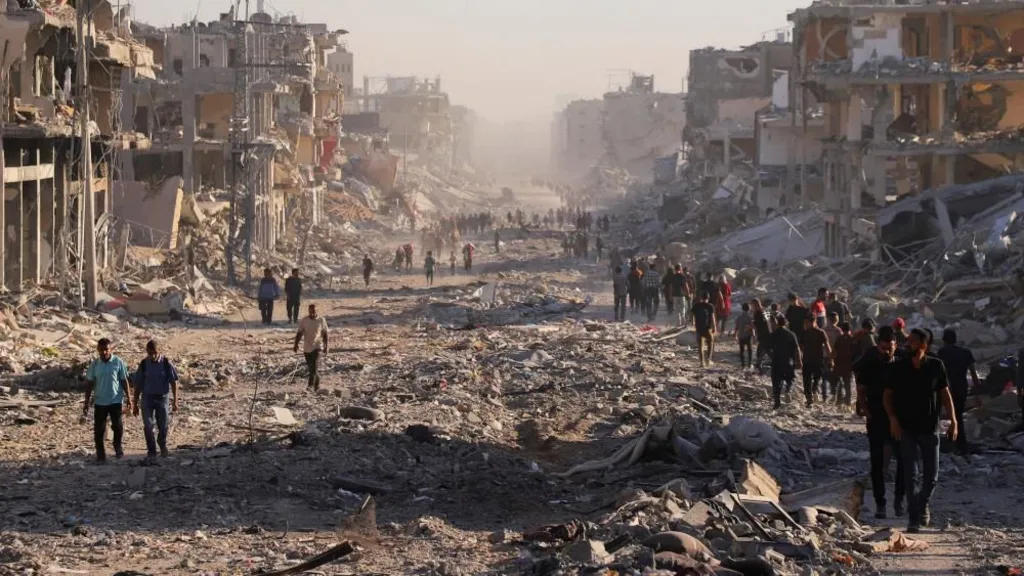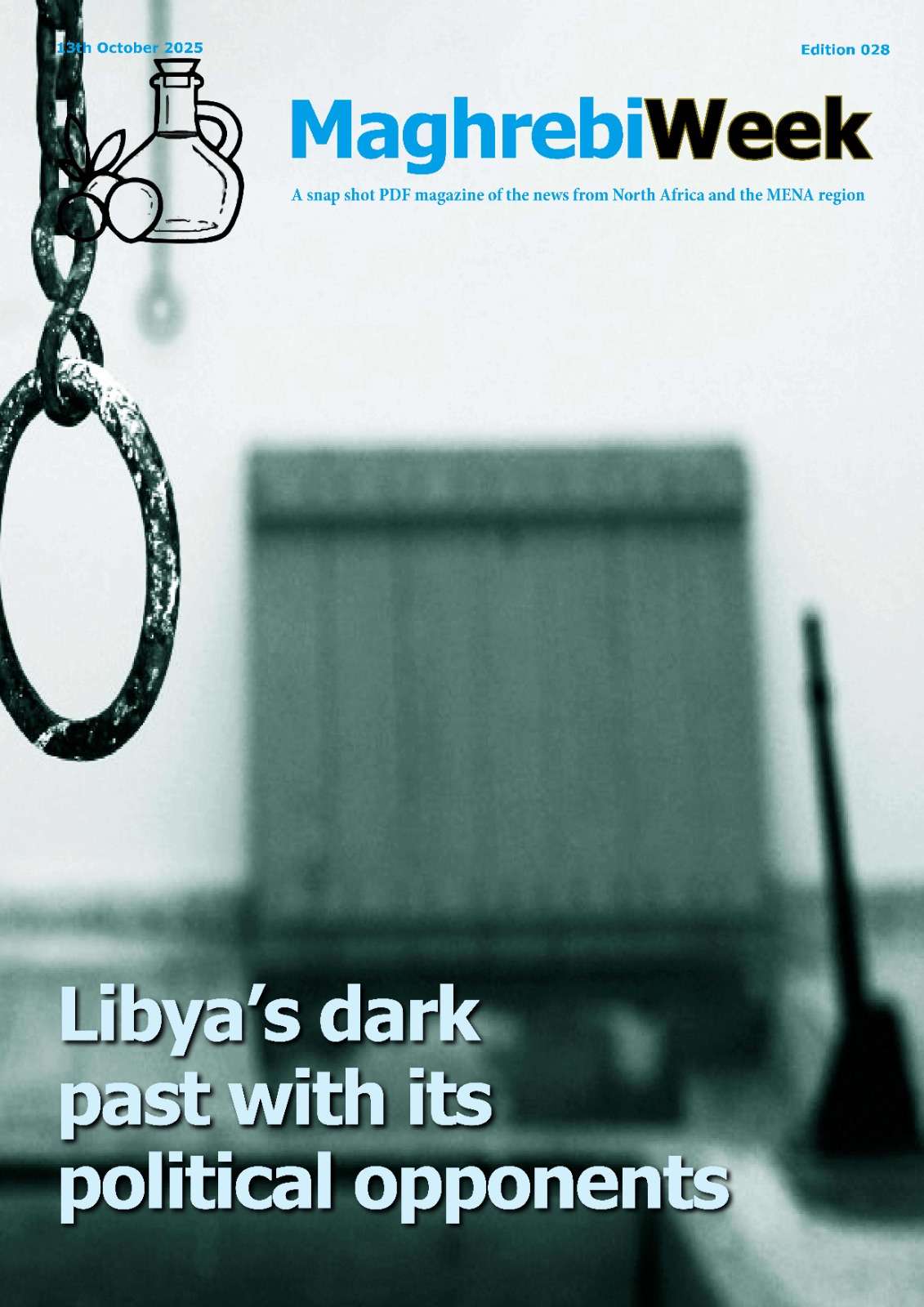Gaza war exposes Western double standards and moral bias

Residents stand amid flattened residential blocks in Gaza, surveying destruction after weeks of conflict
The two-year war in Gaza has exposed what critics describe as the West’s selective morality and geopolitical bias.
According to Ziyad Motala writing for Middle East Eye on October 13, Western governments routinely invoke human rights and international law, yet largely ignore atrocities committed by Israel. Motala argues that Gaza has revealed “the law of nations is the law of empire, applied rigorously against the weak, and selectively — if at all — against the strong.”
Motala highlights that while Western leaders condemned Russia’s invasion of Ukraine, their responses to Israel’s attacks on Gaza have been muted. He adds that Arab regimes, reliant on Western patronage, have also traded silence for political protection, further enabling the ongoing humanitarian crisis.

Recent developments illustrate these dynamics. The United States continues to publicly support Israel while emphasizing limited calls for restraint. President Donald Trump, speaking on August 25 alongside South Korean President Lee Jae Myung, said that Israel “must settle its war on Gaza soon,” yet Trump did not criticize the violence against civilians, reflecting the ongoing alignment of US policy with Israeli military objectives. Secretary of State Marco Rubio added that any resolution must include the “removal of Hamas,” underscoring Washington’s conditional approach to peace.
Diplomatic pressures are also evident. Israeli Foreign Minister Gideon Saar lobbied 250 US lawmakers in September 2025 to promote anti-BDS legislation, framing the Boycott, Divestment and Sanctions movement as a coordinated effort against Israel. Meanwhile, the UK government announced plans to bar Israeli officials from enrolling at the Royal College of Defence Studies starting in 2026, a rare move reflecting increasing international concern over Israel’s military actions in Gaza.
Taken together, these developments illustrate Motala’s central point: the international order often privileges the powerful, while humanitarian norms are inconsistently applied. The war has heightened scrutiny of Western and Arab responses, reviving debate over the credibility of global human rights advocacy in conflicts involving Israel and Palestine.
Middle East Eye, Maghrebi.org
Want to chase the pulse of North Africa?
Subscribe to receive our FREE weekly PDF magazine













